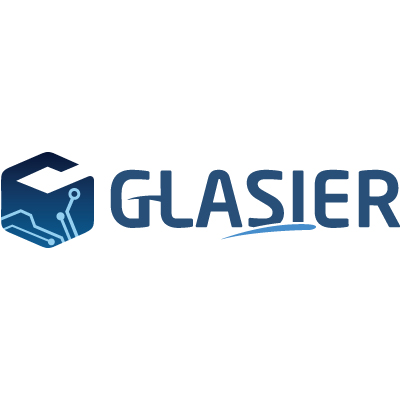Conversational AI in Healthcare: Transforming Patient Care
 Glasier Inc.
Glasier Inc.
Introduction
In today’s fast-paced healthcare environment, conversational AI is revolutionising how patients and medical providers communicate. By integrating smart, user-friendly virtual assistants into healthcare systems, interactions are becoming faster, more personal, and more efficient.
These AI-powered assistants, whether through voice, chat, or mobile apps, can answer patient questions, schedule appointments, send reminders, and even offer basic symptom guidance. Think of it as having a friendly digital nurse or clinic assistant available 24/7.
The global conversational AI healthcare market is growing rapidly, expected to reach USD 16.9 billion by 2025 and an impressive USD 123 billion by 2034 with a CAGR of 24.7%. This explosive growth proves that conversational AI is becoming an essential part of healthcare worldwide.
At Glasier Inc., we specialise in AI development services that make this technology simple, secure, and reliable so it’s accessible to everyone, from tech-savvy professionals to first-time users.
What Is Conversational AI in Healthcare?
Conversational AI in healthcare refers to intelligent software that can understand and respond to patients via text or speech. Powered by artificial intelligence, natural language processing (NLP), and machine learning, these tools go beyond scripted responses; they understand intent, context, and even patient preferences, improving over time.
Key features include:
Real-time chat or voice assistance
Contextual understanding of patient queries
Integration with healthcare management systems
Secure handling of sensitive medical data
At Glasier Inc., our custom AI solutions work seamlessly across web chat, mobile apps, and voice assistants, enabling patients to get help anytime, whether it’s understanding prescriptions, booking appointments, or checking symptoms.
Real-World Benefits of Conversational AI
1. 24/7 Patient Support
Patients can get clinic hours, follow-up reminders, or treatment details at any time. This reduces wait times, boosts satisfaction, and ensures accessibility even outside working hours.
2. Reduced Workload for Staff
Automating routine tasks like scheduling, follow-ups, and form submissions frees up healthcare staff to focus on patient care.
3. Smarter Documentation
AI-powered medical transcription tools convert doctor-patient conversations into structured notes in real time, cutting documentation time by up to 60%.
4. Faster Symptom Assessment
Built-in AI symptom checkers can triage cases and recommend next steps, helping direct patients to the right level of care.
5. Accessible Mental Health Support
Conversational AI companions such as Wysa and Woebot provide check-ins, mood tracking, and emotional support, offering comfort while ensuring human oversight for critical needs.
6. AI-Powered Voice Assistance
Voice AI agents can handle insurance calls, verify benefits, and speed up administrative processes, reducing operational costs significantly.
7. Global Market Growth Opportunities
Healthcare organisations adopting conversational AI now can position themselves ahead of the curve in this booming industry.
Also read, What is Healthcare SaaS? Benefits and Trends
How Conversational AI Works: The 3-Step Process
Patient Asks a Question Example: “When’s my next appointment?” or “What are the early symptoms of flu?”
AI Understands the Query Using NLP, the system identifies the intent and context of the question.
AI Responds with Accuracy The AI delivers a clear, human-like response. Over time, it learns and improves from every interaction.
Key Areas of Impact in Healthcare
Area | Example Use |
Appointment Booking | Patients can book or reschedule via chat; automated reminders are sent |
Symptom Checks | AI assists in initial assessment when clinics are closed |
Follow-Up Care | Reminders for medications and post-treatment care |
Doctor Admin Support | Real-time transcription and note creation during consultations |
Insurance Processing | Automated claims verification and authorisation requests |
Emotional Support | AI-powered companions offering mood checks and motivation |
Limitations & Ethical Considerations
While conversational AI is powerful, it’s not error-proof. In rare cases, AI systems may misinterpret symptoms or provide incorrect guidance, which is why human oversight is essential.
Ethical design is also critical, particularly in mental health applications, to ensure AI does not unintentionally harm vulnerable users.
At Glasier Inc., we follow strict compliance, data security, and ethical AI practices to safeguard patient trust.
Why This Matters for Healthcare Providers
For patients, conversational AI means faster, easier access to care.
For healthcare professionals, it reduces administrative burdens and allows more time for personalised medical attention.
By partnering with Glasier Inc., hospitals, clinics, and telehealth platforms can:
Integrate custom AI chatbots with existing systems
Enable secure, HIPAA-compliant patient communications.
Offer multi-language, voice-enabled assistance for a diverse patient base.
The Future of Conversational AI in Healthcare
Advanced Diagnostics: AI that reasons like a medical professional and offers empathetic responses.
Telehealth Integration: Preparing patients and supporting doctors during virtual consultations.
Expanded Mental Health Access: 24/7 emotional and psychological assistance.
Voice-Based Tools: Enhancing Accessibility for Patients with Low Literacy or Limited Internet Access.
Also read, Comprehensive Guide on Generative AI
Final Thoughts
Conversational AI is reshaping the healthcare industry by making medical support more accessible, efficient, and human-like. With the right partner, it can become a powerful asset that enhances patient care while improving operational efficiency.
At Glasier Inc., we create tailored conversational AI healthcare solutions that are secure, scalable, and patient-friendly. Whether you run a clinic, hospital, or telemedicine service, our team can help you implement AI that truly supports both patients and staff.
Let’s discuss how we can develop your AI-powered healthcare assistant securely, effectively, and with a human touch.
Subscribe to my newsletter
Read articles from Glasier Inc. directly inside your inbox. Subscribe to the newsletter, and don't miss out.
Written by

Glasier Inc.
Glasier Inc.
Our Glasierinc is a renowned hybrid app development company providing custom hybrid application development services to businesses or startups, Glasierinc can create hybrid mobile apps that combine native capabilities while employing the power of React Native, Flutter Apps. AngularJS, Node.JS.